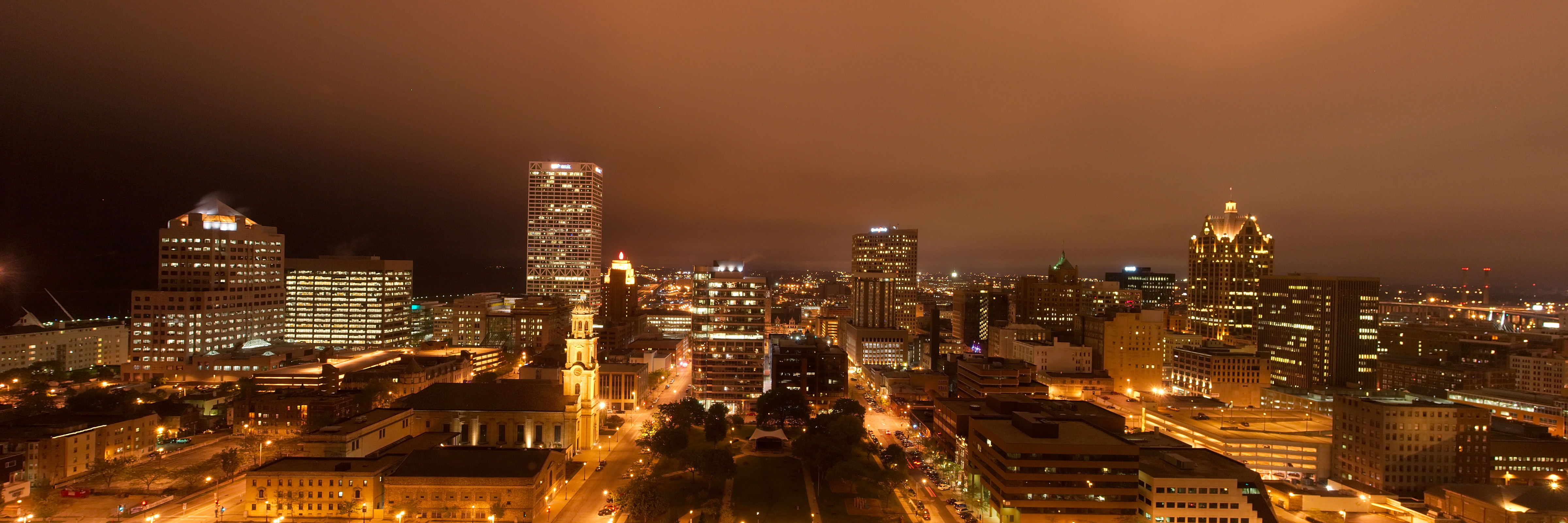Milwaukee is my home. I was born and raised there. My family home is in the Sherman Park neighborhood, half a block from the location of the unrest that happened the weekend of August 12th, 2016. My parents still live there.
Until recent history, Sherman Park was a bastion of black success, the heavily sought after neighborhood of Milwaukee’s black middle class. Black families bought their pieces of the American Dream and planted picket fences along the pristine lawns of the community.
The fall of 1983 saw a new young family buy into the Sherman Park dream. With a seven year old son and five month old daughter, my parents planted firm roots in a neighborhood that was predominantly black and middle class, a community that would foster a sense of pride and upward mobility.
Milwaukee has changed dramatically since 1983, when the Criss family purchased their first home. Back then, Milwaukee had an abundance of manufacturing jobs that offered fantastic wages to a blue collar base with just a high school diploma. A.O. Smith (where my father worked), Jay’s Potato Chips, Master Lock, and more offered opportunities for economic sustainability and cultivation of a (black) middle class. With increased globalization, recessions, and competition, these jobs left Milwaukee. This is the same, sad plight of many city centers throughout the Midwest. As the jobs left, so did economic and educational opportunities, and in came civic unrest.
 The events of this past weekend did not happen in a vacuum. Milwaukee is consistently the leader in racial segregation, it is now noted as being the worst city to raise a black child, and its unemployment rate for black people is appalling. Just as with other large cities, policing is an ongoing issue, with black communities feeling the implicit bias (read “institutional racism”) in the most egregious of ways.
The events of this past weekend did not happen in a vacuum. Milwaukee is consistently the leader in racial segregation, it is now noted as being the worst city to raise a black child, and its unemployment rate for black people is appalling. Just as with other large cities, policing is an ongoing issue, with black communities feeling the implicit bias (read “institutional racism”) in the most egregious of ways.
The unrest following the officer involved shooting of Sylville Smith was not solely in response to Mr. Smith—it was in response to decades of unemployment, under-education, over-policing, and an overall denial of access to the American Dream.
While I am in no way justifying riots, the community organizer in me knows it is necessary to connect the dots for those who do not understand this degree of civic unrest.
Milwaukee’s high unemployment rate most negatively impacts its black community. Without access to jobs, or public transit to access jobs outside of the center city (thanks to Governor Scott Walker), an entire population is left without economic opportunity. They have been left without access to home ownership, because they no longer have access to a livable, middle-class growing wage.
Without access to jobs, they do not reap the benefits of homeownership. I’m not talking solely in terms of a 30+ year appreciating investment, I’m talking about the benefits afforded through taxation (both employment and property), such as quality public education, healthcare, transportation, quality roads, police protection, community pools, heritage and land use planning, etc.
When organizations like the NAACP advocate for equal and fair access, we are advocating for (among other things) increased access to jobs, as economic sustainability is the foundation of future success.
For those of you for whom the Bible translates, reference Genesis 2:15, Psalm 128:2, Ephesians 4:28, all speaking of the importance of work. For those for whom the Bible does not translate, I’ll put it this way, “idle hands are the devil’s work”.
People keep asking what the answers are, and what we’re supposed to do to fix these systemic issues plaguing the black community. And while I don’t know all the answers, I do know the basic framework as a community organizer, laid out by previous and current generations facing similarly dire circumstances.
- Education: Educate yourself and your community on the issues that are most pressing for you.
- Vote: Change is effected on the local level and trickles up. Vote for local officials who have your community’s best interests in mind, those being jobs, education, criminal justice reform, etc.
- Accountability: Hold those officials accountable for the votes you secured, and if they fail to deliver on the promises (or make substantive efforts toward their realization), vote them out of office.
- Own your power: The governed outnumber those who govern. When we act as an organized body, we effect the change we want to see.
The work of social justice is not easy, nor is the work of community organizing, but they are necessary. They lay the groundwork for electing local officials who are focused on job creation. They lay the groundwork for establishing quality education. They lay the groundwork for fairness in police policies.
In order to change the trajectory of Sherman Park and reclaim the black middle class of Milwaukee, we need access to good jobs that offer a true, living wage, jobs that are comparable to the manufacturing jobs that have since left the city. Absent this, the black middle class of Milwaukee will continue to dwindle, and the one time bastion of success for black Milwaukeeans will disappear.
Just this weekend, my father was telling me of his hope for Sherman Park, and for Milwaukee overall. He said there are so many black families still there, people like my parents, the parents of my childhood best friend, my aunts and uncles, my godparents, people who will be around to fight for the future of the neighborhood.
I calmly looked at my father, and pointed out that he kept referencing his generation, and until people of my generation buy into the community, seeing a chance for hope, jobs, security, and access to the American Dream, the future of Sherman Park’s black middle class remains to be decided by those who care most.
